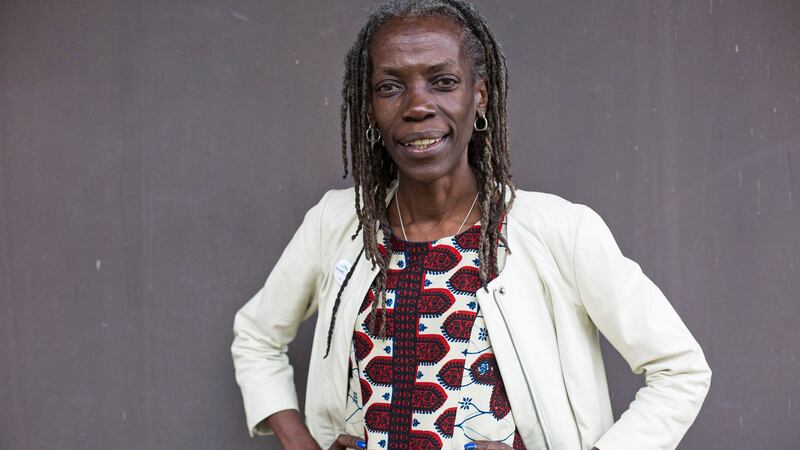Portland City Council Candidate Jo Ann Hardesty reversed herself on a key housing policy question, but continued to take positions that are unlikely to increase the city's supply of affordable housing.
Earlier in her run for City Hall, Hardesty said she'd like to block the development of luxury housing. She also questioned the city's policy of providing benefits to developers for affordable housing.
Hardesty's shifting policy position is important in a race for a position that casts one of the five votes on housing policy in a city trying to address a crippling shortfall of apartments.
At a candidate forum in March, Hardesty floated the idea of a moratorium on luxury housing as a solution to Portland's problem with lack of affordable housing.
In an March 23 interview with Oregon Public Broadcasting that was posted last week, Hardesty elaborated.
"We will put a moratorium on building luxury units until we catch up with other income-level housing," she told OPB. "We have a responsibility to make sure that people of all income levels can live in a safe, affordable place in the city of Portland, and we have failed miserably in that effort."
It was a good campaign line, but as a policy stance, it's unlikely to address the shortfall in housing production the city has experienced.
The problems with Hardesty's argument were laid out by economist Joe Cortright in response to a city commissioner floating a similar argument.
Hardesty quickly reversed herself, and is no longer pledging to halt luxury housing construction.
But she then took a position that appears to be sharply critical of the city's inclusionary housing program that requires developers include affordable housing in projects of 20 units or more.
On April 3, a week and a half after her OPB interview, when WW asked about the issue, no candidate in the race supported a moratorium on luxury housing, including Hardesty.
“I support housing levels being built at all income levels,” Hardesty told WW on April 3. “What I do support is a moratorium of giveaways to luxury developers who don’t proportionally provide benefits to our city including building enough affordable housing units.”
The quick change of her position—combined with her new policy stance—raise questions about Hardesty's knowledge of housing issues, which are among the most crucial decisions facing City Hall.
Hardesty explained that change of position to WW last week, after OPB posted the interview to its website on May 7.
"I have changed my perspective," she emails. "After the Black Voices United candidates' forum I spoke with several housing advocates, developers, economist and others who helped me have a more focused response. I now believe that a moratorium on putting ANY public dollars into luxury units is a better approach then simply doing a moratorium on the entire properties."
Arguing against subsidies for luxury housing isn't controversial.
But Hardesty went further. When asked to specify what public dollars she was talking about, she described the outlines of the city's inclusionary housing policy, which requires developers to provide affordable housing in exchange for tax breaks and waivers related to parking requirements.
"Currently the city will provide incentives for developers to add a few 'affordable units,'" she emailed last week. "This was done recently for a 44-unit complex in the Hollywood district. The developer will provide 4 'affordable units' although we haven't been told what that means. In exchange, the city waived the parking requirements."
There is no inclusionary housing project that's exactly 44 units, but the requirements are indeed spelled out clearly under inclusionary housing: To get the incentives, developers must set aside 10 to 20 percent of units as affordable to someone making 60-80 percent of area media income, depending on family size.
That position would make her unlikely allies with the developers in town who are critical of inclusionary housing, but for a different reason—they say the requirements will dampen development.
Hardesty clarified on May 14 that she does not oppose the inclusionary housing policy, but she declined to clarify when asked a follow-up question, citing her busy schedule on the day before the election.
"If this campaign has taught me anything it's I can learn more talking with those closest to the problem and hearing why they believe I don't have a complete picture," says Hardesty. "We need housing at all income levels in all neighborhoods in the city of Portland."
